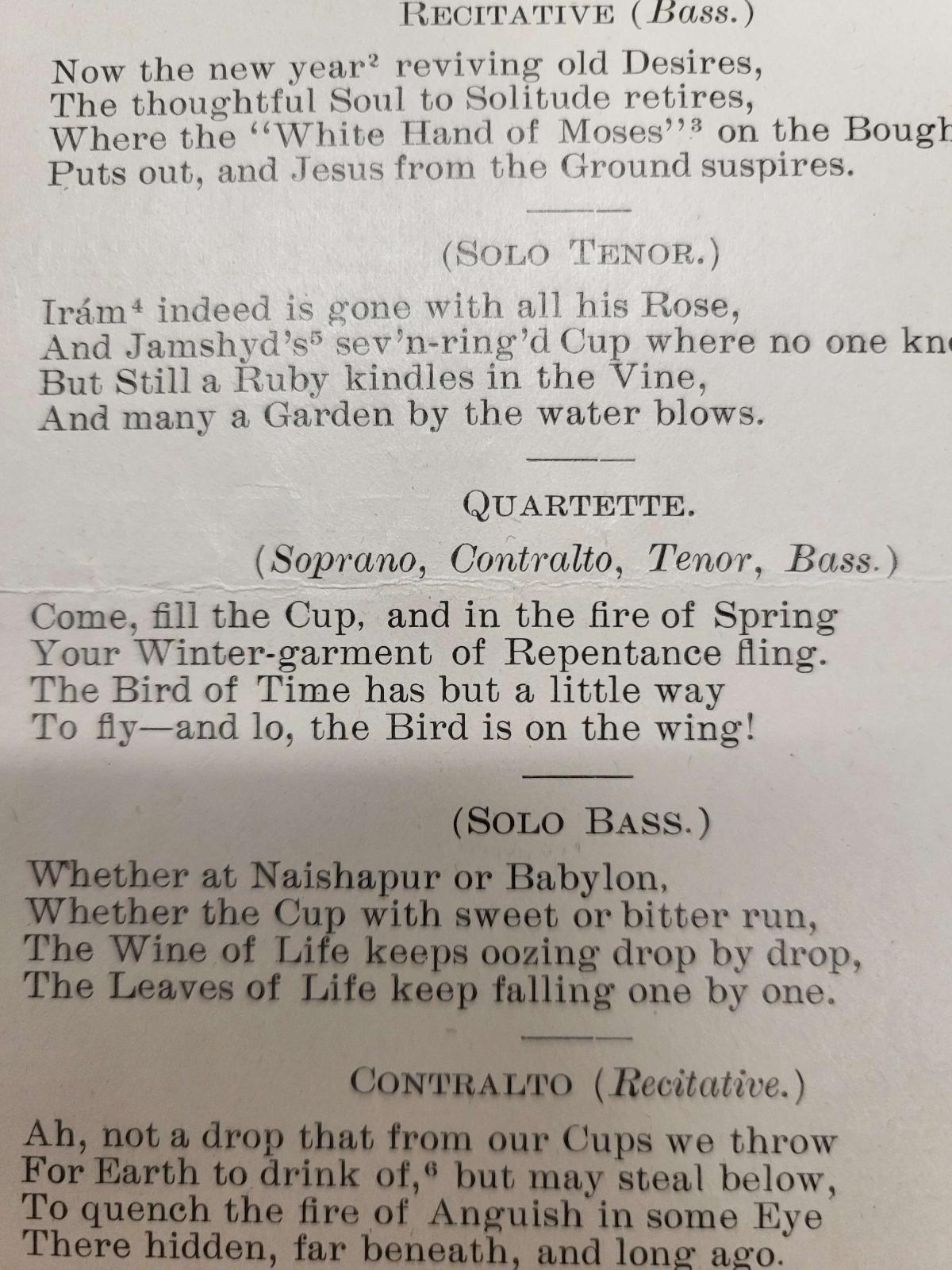In a Persian Garden: The Life of Liza Lehmann: Unveiled Voices
Soprano - Carl Alexander Contralto - Matthew Truss Tenor - Henry Pleas III Bass - Vince Wallace Pianoforte - Charles Thomas Hayes
This stanza, in the middle of the first No. of Liza Lehmann’s composition, centers around the image of ‘the cup,’ seasonal change, and the passage of time. Unlike other formats of the Rubáiyát, there are no accompanying images to this book; instead, they are interpreted artistically in the music itself. The words themselves hold the meaning of the book as a whole—the metaphors that are used, the images brought to mind. What the musical arrangement adds is a sense of mood and character to the words being sung. The combined work of Khayyám and Fitzgerald forms a metaphor and a message about the impermanence of life and letting go of past guilt. Lehman in turn adds characters in her arrangement, so that the message is from a chorus of voices in a round—a joyful, cycling crowd, instead of a single man. She also sets it to a jaunty, rapid piano accompaniment. This is not typical of the entire composition: it is in fact bookended by a much slower Tenor solo, and a more sombre Bass solo, before it repeats once more at the end of the first No. The combined effect forms a jovial, almost childish message for the listener, being blithely reminded to savor life as time goes on and will eventually run out.
Starting with the words themselves, many of the symbols in this stanza are highlighted by the way Fitzgerald utilizes capitalization: ‘Cup’, ‘Spring’, ‘Winter-garment of Repentance’ ‘Bird of Time’, and again, ‘Bird’. The ‘Cup’ here holds a double meaning. More literally, this is about a cup of wine, which Khayyám repeats throughout his work to represent drinking and drunkenness. It also here stands for life itself, implying it as a vessel to be filled with experiences or desires (and aforementioned drinking.) Of course, Lehmann can’t literally capitalize letters in an audio form, and so her interpretation repeats the phrase “Come fill the Cup” and indicates for vocalists to use louder volume. The mention of Spring introduces the idea of a “Winter-garment of Repentance,” in other words, Repentance that may have been required in the past (a garment for winter) that can now be discarded for a change in needs. This change of seasons also indicates the passage of time, which is then given the metaphorical ‘Bird’ which is implied to have limits that it is already moving towards. The tempo and round-style with staggered voices bring to mind stops and starts, paired with a rushing, then slowing speed, which brings to mind the temporality of Fitzgerald’s translation. There’s also a certain sensuality to the mention of removing a garment, especially one that may symbolize past regrets or punishments. Lehmann chooses to overlook this in her compositions, deciding not to emphasize the fiery aspect of the verse. Her accompaniment for the line remains fast and light.
In many ways the musical addition resembles an illustration, in both giving a limited view and enhancing the text.




